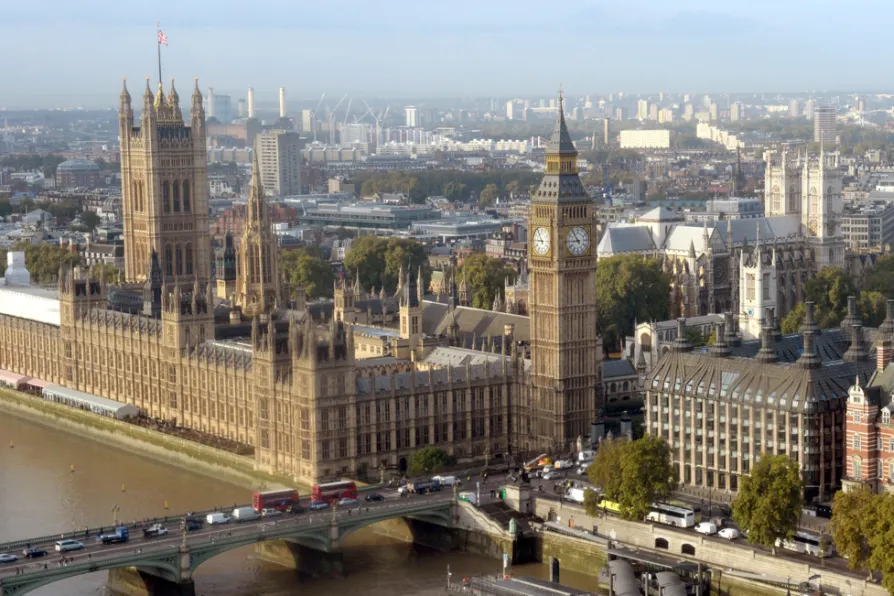From Chartists and Suffragettes to Irish republicans and today’s Palestine activists, the treatment of hunger strikers exposes a consistent pattern in how the British state represses those it deems political prisoners, says KEITH FLETT


WHEN the Fixed Term Parliament Act was passed by the coalition government in 2011, many were so stunned in the headlights of the fierce austerity that we lost sight of the big negative effect the Act would have on our democracy.
No doubt at the time the Liberals were panicking that the Tories would dump them and wanted to prolong their unique moment of glory playing lapdog and putting the finishing touches to the destruction of public services and local democracy.
However, what the Act did was actually illiberal and dangerous. The Liberals love the EU and its centralising authoritarianism can be smelt in the Act as well.
The proponents of the Act said it took politics out of the calling of a general election, which is an odd concept for the most profound of political processes if ever there was one.
So the Act says there can only be a general election if a government reaches the end of its statutory term of office, if it itself decides to go to the people or if it faces a successful vote of no confidence passed by a parliamentary majority of two-thirds.
It all sounds quite reasonable perhaps until you apply its provisions to the current situation.
The British people have given Parliament the biggest mandate ever in our history to leave the EU. In calling the referendum, all parties agreed that Parliament would be bound by the result. It is partly irrelevant what the actual parties in Parliament do — their mandate is to take us out of the EU. That’s why the majority who voted for leave are so far patiently waiting. Patience might run out if Parliament proves incapable of getting us cleanly out of the EU.
Parliament has indeed voted to take us out of the EU on March 29 2019. That’s the default position if Parliament can’t agree a deal by then, we are still out. Any tinkering with this date would represent the deepest assault on democracy.
What happens then if a government which has rejected any cross-party involvement in negotiating our exit from the EU makes a mess of the withdrawal agreement? Just say hypothetically this were to happen!
And what, heaven forbid, if they were to make the mess with the full agreement of the EU bureaucrats who don’t want us to leave their club anyway and, even more unlikely surely, what if they were to propose an agreement to Parliament that looked more like staying in the EU than leaving in some key respects?
It’s beyond belief it could ever happen, but let’s say that government also deliberately agreed to surrender all parliamentary control over the key levers of economic and judicial power to the EU for two years without any influence over it. Not even Remainers voted for that. There’d be 33 million against such an imaginary deal.
And, stretching this impossible scenario even further, let’s say they made such an agreement at the latest possible time to put as much pressure on the timescale Parliament had previously agreed to. And let’s say, preposterously perhaps, they did so in the hope Brexit could be delayed for ever and it would seem so difficult to get out of the clutches of the EU no-one would ever bother again.
Well, unless those in Parliament opposing such hypothetically dastardly deeds have a two-thirds majority to remove the government, you can do bugger all about it. You can’t stamp your feet and call an election.
You then reach a scenario where Parliament agrees to abandon its authority more completely than ever to the EU and the government that leads to this abandonment of sovereignty can stay in power. You are left with no meaningful Parliament but a super-strong government gutted by the EU and hated by the British people.
Britain comes under the direct rule of the EU and it ends up with the DUP in effect arguing for home rule for the UK. Meanwhile, Sinn Fein MPs still don’t take up their seats in Westminster to help save us from ourselves alone and are content with their seats in Brussels to make Ireland a wholly owned subsidiary of the EU. And let’s not forget the Scots Nats preferring to be governed by Jean Claude Junker than Jeremy Corbyn.
You couldn’t make it up and might get angry about it. So you consult the Recall of MPs Act 2015 — after all, these MPs are accountable to us aren’t they, so perhaps we can get rid of them.
![Majority members out campaigning in Newcastle [Pic: Majority]]( https://msd11.gn.apc.org/sites/default/files/styles/low_resolution/public/2025-07/20majority.jpg.webp?itok=oAYoJu53)
JAMIE DRISCOLL explains how his group, Majority, plans to empower working people to empower themselves

Twelve months into Labour’s landslide sees non-violent protesters face proscription for opposing genocide and working people, the sick and the elderly having fear beaten into them daily in the name of profit, writes MATT KERR

From Gaza complicity to welfare cuts chaos, Starmer’s baggage accumulates, and voters will indeed find ‘somewhere else’ to go — to the Greens, nationalists, Lib Dems, Reform UK or a new, working-class left party, writes NICK WRIGHT












